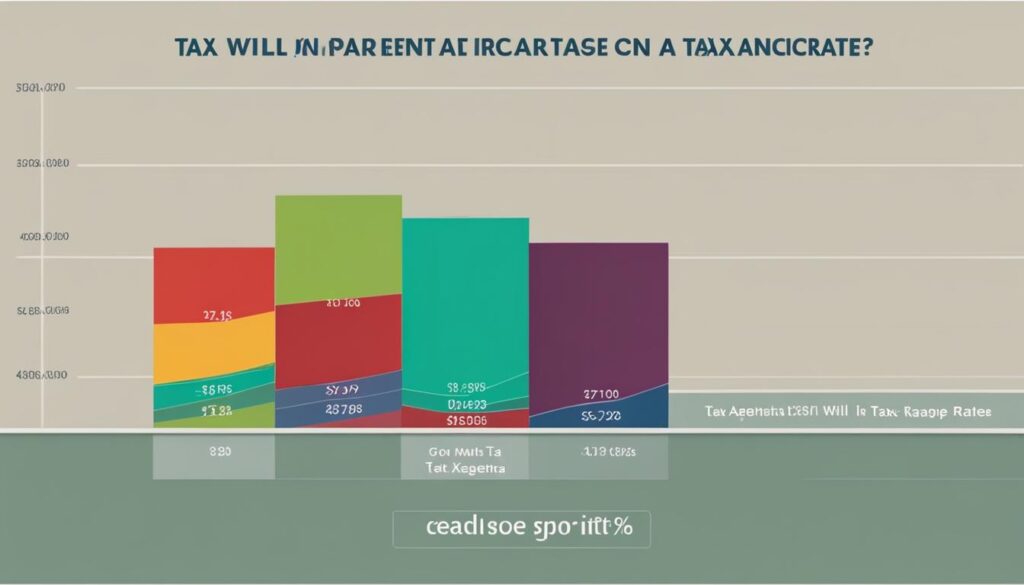Are you considering hiring remote employees in Argentina? Understanding the local labor laws, tax regulations, and compliance requirements is crucial for a successful remote workforce. In this guide, we will explore the different options for hiring remote workers in Argentina and provide insights into payment methods and obligations.
When it comes to hiring remote employees in Argentina, there are three main options to consider:
- Opening a legal entity in Argentina: This option involves establishing a local presence in Argentina and hiring employees directly. It requires compliance with local labor laws, tax obligations, and other legal requirements.
- Working with a global employment partner: This option allows you to delegate the hiring and payment processes to a trusted partner who has expertise in Argentinean labor laws and can handle the administrative aspects on your behalf.
- Hiring workers as contractors: If you prefer a more flexible arrangement, you can hire remote workers in Argentina as independent contractors. However, it is essential to ensure compliance with legal guidelines to avoid misclassification risks.
In addition to choosing the right hiring option, understanding the currency options for paying remote workers is crucial. While paying in Argentine pesos (ARS) is the default option, some remote workers may prefer to be paid in US dollars due to the country’s economic fluctuations and inflation rates.
It is also important to familiarize yourself with the tax rates and brackets in Argentina. The tax rates are progressive and range from 5% to 35%, depending on the individual’s taxable income. This knowledge will help you calculate payroll deductions accurately and manage your remote workers’ tax obligations.
Complying with local labor laws in Argentina is a crucial aspect of hiring and paying remote employees. This includes providing a safe working environment, paying employees on time, and adhering to regulations regarding working hours and rest periods.
Now that you have an overview of how to hire and pay remote employees in Argentina, let’s explore the specifics of payment methods, tax rates, taxable components of salary, and payroll deductions in the following sections.
Key Takeaways:
- When hiring remote employees in Argentina, consider opening a legal entity, working with a global employment partner, or hiring workers as contractors.
- Understand the currency options for paying remote workers and consider the preferences of your employees.
- Familiarize yourself with the tax rates and brackets in Argentina to ensure accurate payroll calculations.
- Comply with local labor laws in Argentina, including providing a safe working environment and following regulations regarding working hours and rest periods.
- Consult with legal experts or business associations to ensure compliance with payroll deductions and other legal obligations.
How do Foreign Businesses Pay Remote Workers in Argentina?
When it comes to paying remote workers in Argentina, foreign businesses have several options to consider. Each option has its advantages and considerations, and the choice depends on factors such as the company’s budget, long-term goals, and the level of control they want to maintain.
One option is for foreign businesses to open a legal entity in Argentina. By doing so, they can pay their remote workers in the local currency. This can facilitate smoother transactions and help ensure compliance with local regulations.
Another option is to work with a global employment partner who specializes in remote workforce management. These partners can handle the hiring and payment process on behalf of the company, minimizing the administrative burden for foreign businesses. By leveraging the expertise of these partners, companies can navigate the complexities of hiring and paying remote workers in Argentina more effectively.
Alternatively, companies can choose to hire and pay remote workers in Argentina as contractors. However, it is crucial to exercise caution to avoid the risks of misclassification. Proper classification is essential to adhere to legal requirements and protect both the company and the worker. Consulting with legal experts or employment consultants can provide guidance on appropriate contractor arrangements.
Ultimately, the choice of how to pay remote workers in Argentina depends on the unique circumstances and preferences of each foreign business. It is crucial for companies to evaluate their specific needs, consider the potential benefits and challenges of each option, and make an informed decision accordingly.
In What Currency do Companies Pay Remote Workers in Argentina?
When it comes to paying remote workers in Argentina, companies have the flexibility to choose the currency in which they make payments. While the local currency, Argentine pesos (ARS), is commonly used, employers can also opt to send payments in any other currency. However, it’s important to note that currency exchange rates may fluctuate based on economic conditions.
An interesting point to consider is that some remote workers in Argentina prefer to be paid in US dollars. This preference is often due to the country’s economic fluctuations and inflation rates, which can impact the value of the Argentine peso. By receiving payments in US dollars, remote workers can potentially protect themselves against these economic uncertainties.
Ultimately, the choice of currency for payment should be agreed upon between the employer and the employee. It’s important for both parties to consider factors such as exchange rate stability, convenience, and any potential fees associated with currency conversion.
Having a clear understanding of the currency options available when paying remote workers in Argentina is crucial for employers. It allows them to make informed decisions that align with their business needs and the preferences of their remote workforce.
What are the Tax Rates for Tax Brackets in Argentina?
When it comes to paying remote employees in Argentina, understanding the tax rates for different tax brackets is crucial. Argentina has a progressive tax system, which means that the tax rates increase as the taxable income rises. There are four tax brackets in Argentina, with tax rates ranging from 5% to 35%.
Here is a breakdown of the income tax rates for 2023 in Argentina:
- 5% for income up to ARS 173,834.61
- 9% for income between ARS 173,834.61 and ARS 347,669.23
- 12% for income between ARS 347,669.23 and ARS 521,503.84
- 15% for income between ARS 521,503.84 and ARS 695,338.47
- 19% for income between ARS 695,338.47 and ARS 1,043,007.68
- 23% for income between ARS 1,043,007.68 and ARS 1,390,676.90
- 27% for income between ARS 1,390,676.90 and ARS 2,086,015.35
- 31% for income between ARS 2,086,015.35 and ARS 2,781,353.85
- 35% for income over ARS 2,781,353.85
Please note that these tax rates apply specifically to income tax and do not include other taxes such as capital gains or additional taxes that may be applicable.

Understanding the tax rates for tax brackets is important for calculating the accurate amount of taxes that need to be deducted from remote employee payments in Argentina. By being aware of these rates and staying in compliance with local tax regulations, you can ensure proper tax withholding and avoid any potential issues.
Which Parts of Salary in Argentina are Taxable?
In Argentina, it’s essential to understand which parts of the salary are taxable and which may be exempt. There are various components of the salary that are fully taxable, including income from industrial and commercial activities, interests on deposits and loans, and gains from the sale of land-related properties. These taxable components need to be accounted for when calculating taxes on the taxable salary in Argentina.
However, it’s important to note that there are exemptions for the first portion of income depending on the individual’s circumstances. For example, domestic service employees or individuals over 75 years old may be eligible for exemptions on a portion of their income. These exemptions can vary, so it’s crucial for employers to understand the specific exemptions that apply to their employees.
By understanding the taxable components of salary, employers can ensure accurate tax calculations and compliance with tax regulations in Argentina. This knowledge enables companies to fulfill their tax obligations and avoid penalties or legal issues related to remote employee payment in Argentina.
Understanding the taxable and exempt components of salary is crucial for employers operating in Argentina. By following the tax regulations and accurately accounting for taxable income, businesses can foster a compliant and transparent working environment for remote employees. Compliance with the tax laws also plays a significant role in maintaining a good relationship with employees and ensuring the financial stability of the workforce.
What Payroll Deductions are Employers Required to Make in Argentina?
When it comes to paying remote employees in Argentina, employers must be aware of the payroll deductions they are required to make. These deductions are essential for ensuring compliance with local laws and regulations, as well as the well-being and financial security of the employees. Here are the key payroll deductions that employers in Argentina must make:
1. Insurance Contributions:
- Medical Insurance: Employers are required to contribute to the medical insurance coverage of their employees. This ensures that employees have access to quality healthcare services.
- Unemployment Insurance: To support employees during periods of unemployment, employers must make contributions towards the unemployment insurance scheme.
- Occupational Disease Insurance: It is mandatory for employers to contribute towards insurance that covers occupational diseases to protect their employees’ health and well-being.
- Professional Injury Insurance: Employers must make contributions towards insurance that provides coverage for professional injuries sustained by their employees.
- Workers’ Compensation: To provide financial support to employees who suffer work-related injuries or illnesses, employers are required to make contributions to the workers’ compensation system.
- Compensation for Accidents in the Workplace: In the unfortunate event of workplace accidents, employers are responsible for providing compensation to affected employees. Deductions are made to cover these compensations.
2. Pension Schemes:
To ensure retirement benefits for employees, employers must deduct funds and contribute to the pension schemes available in Argentina. These contributions play a crucial role in providing financial security to employees in their later years.
3. Personal Income Tax:
Employers are responsible for deducting personal income tax from their employees’ salaries according to the tax rates and brackets set by the Argentine tax authorities. These deductions help employees fulfill their tax obligations efficiently.
4. Municipal and Provincial Taxes:
In addition to personal income tax, employers may also have to deduct municipal and provincial taxes from their employees’ salaries, depending on the specific regulations of the municipality and province where the employee is based. These deductions contribute to local government revenues and services.
5. Additional Deductions:
Depending on the specific employment contract and agreements made between the employer and the employee, there may be additional deductions that employers are required to make. These deductions could include contributions to specific funds, such as education funds, housing funds, or social security funds.
It is crucial for employers to consult with the legal department of their business association or seek professional advice to ensure compliance with all required payroll deductions in Argentina. By fulfilling their obligations, employers can maintain legal compliance, support their employees’ financial well-being, and foster a positive work environment.
Conclusion
Hiring and paying remote employees in Argentina requires a deep understanding of the local labor laws, tax regulations, and compliance requirements. The process can be streamlined by considering various options, such as opening a legal entity in Argentina, partnering with a global employment firm, or hiring workers as contractors. It is essential to select a payment method that satisfies both the employer and the employee.
Compliance with tax rates, payroll deductions, and local labor laws is paramount to avoid potential fines, penalties, and legal issues. The tax rates in Argentina are progressive and differ based on income brackets. Understanding which parts of salary are taxable and which ones are exempt is crucial to ensure accurate tax calculations and compliance.
By adhering to the necessary legal requirements and implementing accurate payment processes, employers can successfully hire and pay remote employees in Argentina while maintaining legal compliance and fostering a satisfied and productive workforce.
FAQ
How do I hire and pay remote employees in Argentina?
When hiring remote employees in Argentina, there are three main options: opening a legal entity in Argentina, working with a global employment partner, or hiring workers as contractors. It is important to understand the local labor laws, tax legislation, and compliance requirements.
What currency do companies pay remote workers in Argentina?
Companies can pay remote employees in Argentina in Argentine pesos (ARS), but they can also send them money in any other currency. The chosen currency for payment should be agreed upon between the employer and the employee.
What are the tax rates for tax brackets in Argentina?
The tax rates in Argentina are progressive and range from 5% to 35%. There are four tax brackets, and the rates apply based on an individual’s taxable income.
Which parts of salary in Argentina are taxable?
Certain parts of the salary in Argentina are taxable, including income from industrial and commercial activities, interests on deposits and loans, and gains from the sale of land-related properties. However, there are exemptions for the first portion of income, which vary depending on the individual’s circumstances.
What payroll deductions are employers required to make in Argentina?
Employers in Argentina are required to make several payroll deductions, including contributions for insurance schemes, pension schemes, personal income tax, municipal tax, provincial tax, and any other additional deductions agreed upon in the employment contract.
What are the legal requirements for hiring remote employees in Argentina?
Hiring remote employees in Argentina requires compliance with local labor laws, such as providing a safe working environment, paying employees on time, and following regulations regarding working hours and rest periods.




